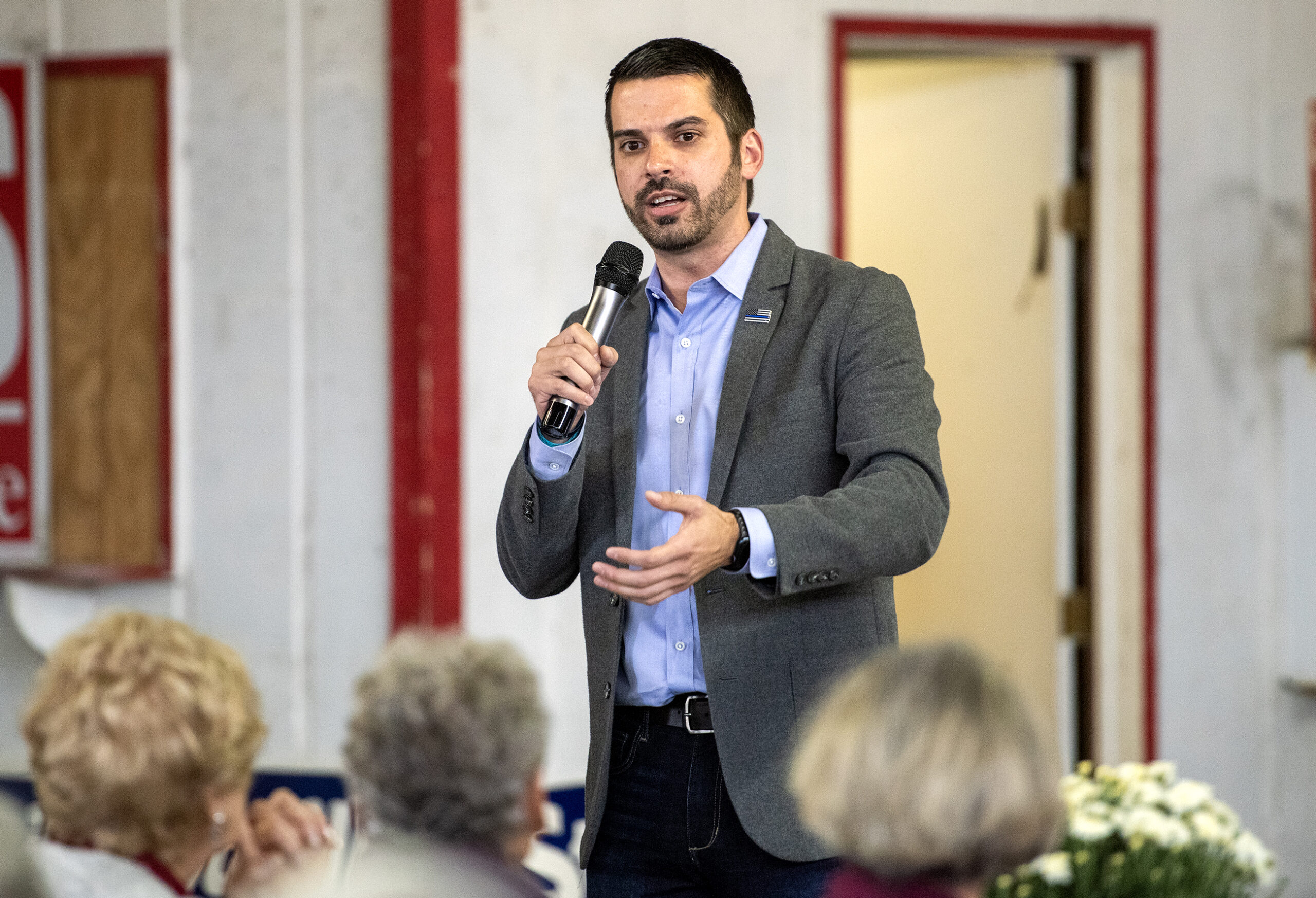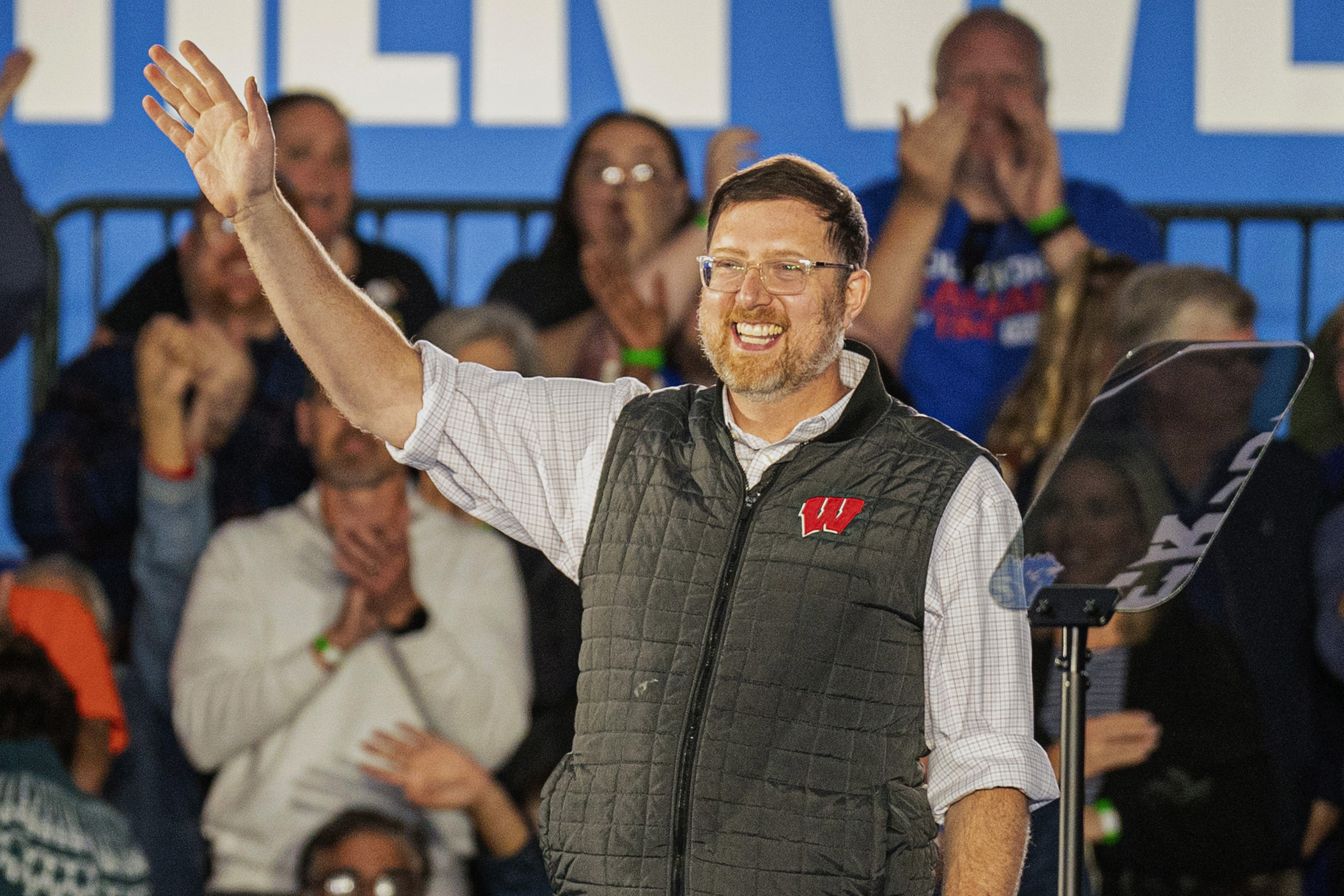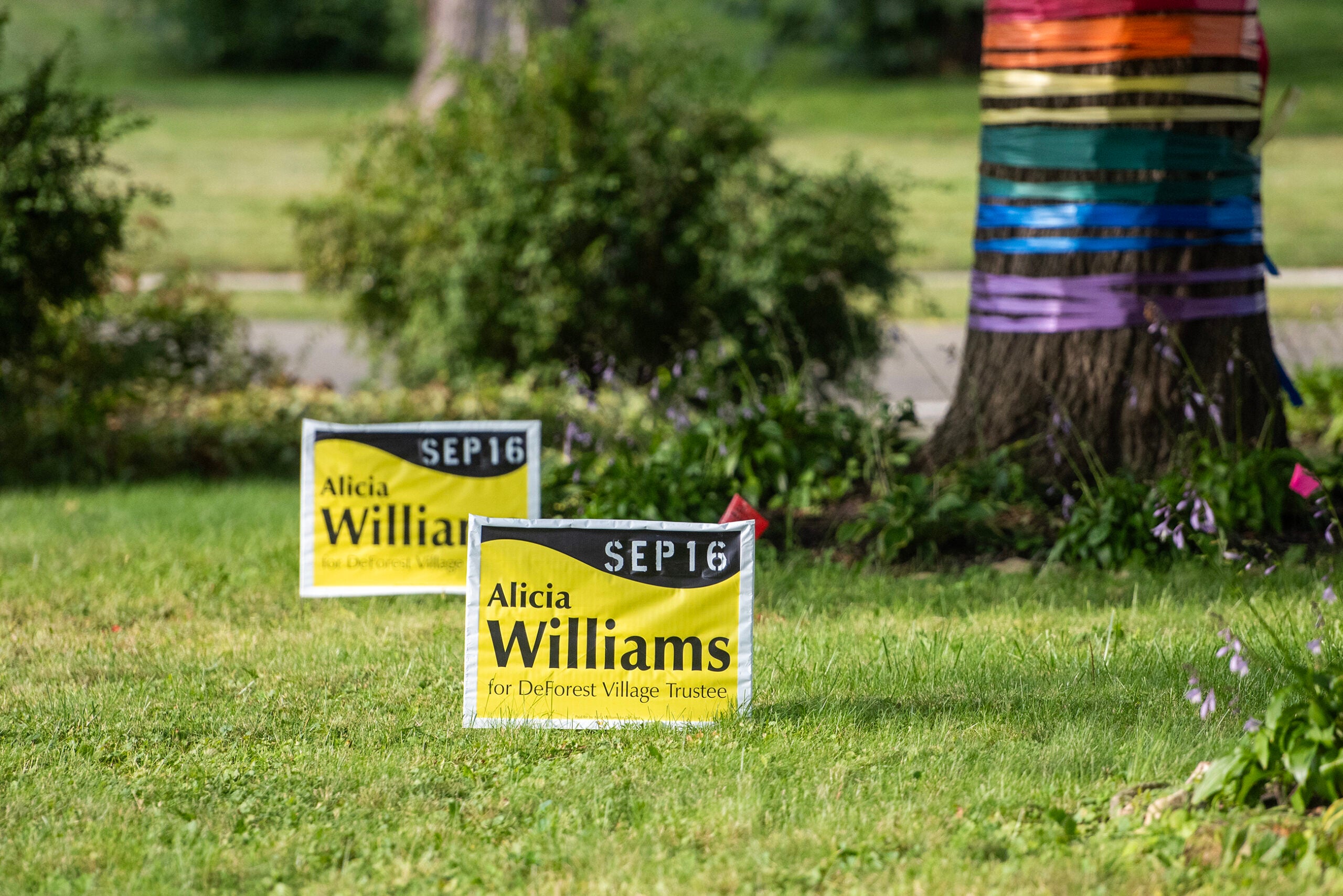On a recent morning at Rise and Grind Cafe in Milwaukee’s Bronzeville neighborhood, cafe employee Corey Strong talks to regulars and employees about his favorite topic: the city’s history.
Strong is somewhat of a local savant. Born and raised in Milwaukee, he was a college history major and has been a political junkie for a long time, voting twice for former President Barack Obama. But disinterest kept him from voting in 2016.
This year is different. Strong’s dislike for President Donald Trump has him much more engaged in the upcoming presidential election.
News with a little more humanity
WPR’s “Wisconsin Today” newsletter keeps you connected to the state you love without feeling overwhelmed. No paywall. No agenda. No corporate filter.

Corey Strong, right, was a political junkie and history major in college. But disinterest kept him from voting in 2016. Strong is pictured here with Michelle Patrick at Rise and Grind Cafe in Milwaukee. Corrinne Hess/WPR
“I disagree with the president so much … I want to see a change,” Strong said. “So if that means voting for a Democrat or a person with ideas similar to mine, but not so much mine. Or that are far left of what right is, I will do that.”
Wisconsin’s voter turnout in the 2016 election was the lowest it had been for any presidential race in nearly 20 years. And predominantly black neighborhoods in Milwaukee reported some of the biggest declines.
Democrats have vowed to focus on Milwaukee turnout — as shown by their decision to host the Democratic National Convention there this July. But Republicans are also making overt appeals to Wisconsin’s African American voters, even though they historically vote overwhelmingly for Democrats.

Table courtesy of the Center for American Progress
The Republican Party of Wisconsin opened its first field office in Bronzeville — a predominantly black neighborhood just north of downtown Milwaukee — in February. Within two weeks the office was vandalized.
Just five blocks away, at Rise and Grind, Strong and others say they see the GOP office’s location as a bold move.
Strong explained that when African Americans were not allowed inside white-owned clubs and hotels before the civil rights movement, they created their own entertainment district in Bronzeville.
Larina Hightower is the owner of Rise and Grind. She said the fact that the GOP opened an office in a predominantly black neighborhood shows her African Americans have power in this election.
“The fact that they have it on King Drive and I’m sure they know that a lot of people are Democrats, and they don’t have our support, well it’s a pretty bold move,” Hightower said.

Larina Hightower, left, Baboonie Tatum, center, and Nieisha Riseling, right, said they are surprised the Wisconsin GOP opened an office on King Drive in Milwaukee. Hightower, one of the owners of Rise and Grind Cafe in Milwaukee said it must be a sign the black vote is important, so she said she plans on using her vote wisely. Corrinne Hess/WPR
The GOP office is staffed by Khenzer Senat, the party’s African American outreach director who until now has worked in other field offices across southeastern Wisconsin.
Senat said the reaction has been positive when people walk in off the street.
Mark Jefferson, head of the Wisconsin GOP, said he knows the party has done a poor job of reaching out to people of color, particularly African Americans.
“I don’t sit here and say we’re necessarily going to win in the city of Milwaukee this time around,” Jefferson said, “But if we get more votes out of that area than we have in the past, then we are going to be making improvements necessary to win this state.”
According to U.S. Census estimates, voter turnout for African Americans was down about 7 percent nationwide in 2016 compared with 2012. In Wisconsin, according to the Center for American Progress, it was down 20 percent.

Caitlin Bourbeau/UW Applied Population Laboratory
Wisconsin Public Radio, © Copyright 2025, Board of Regents of the University of Wisconsin System and Wisconsin Educational Communications Board.







